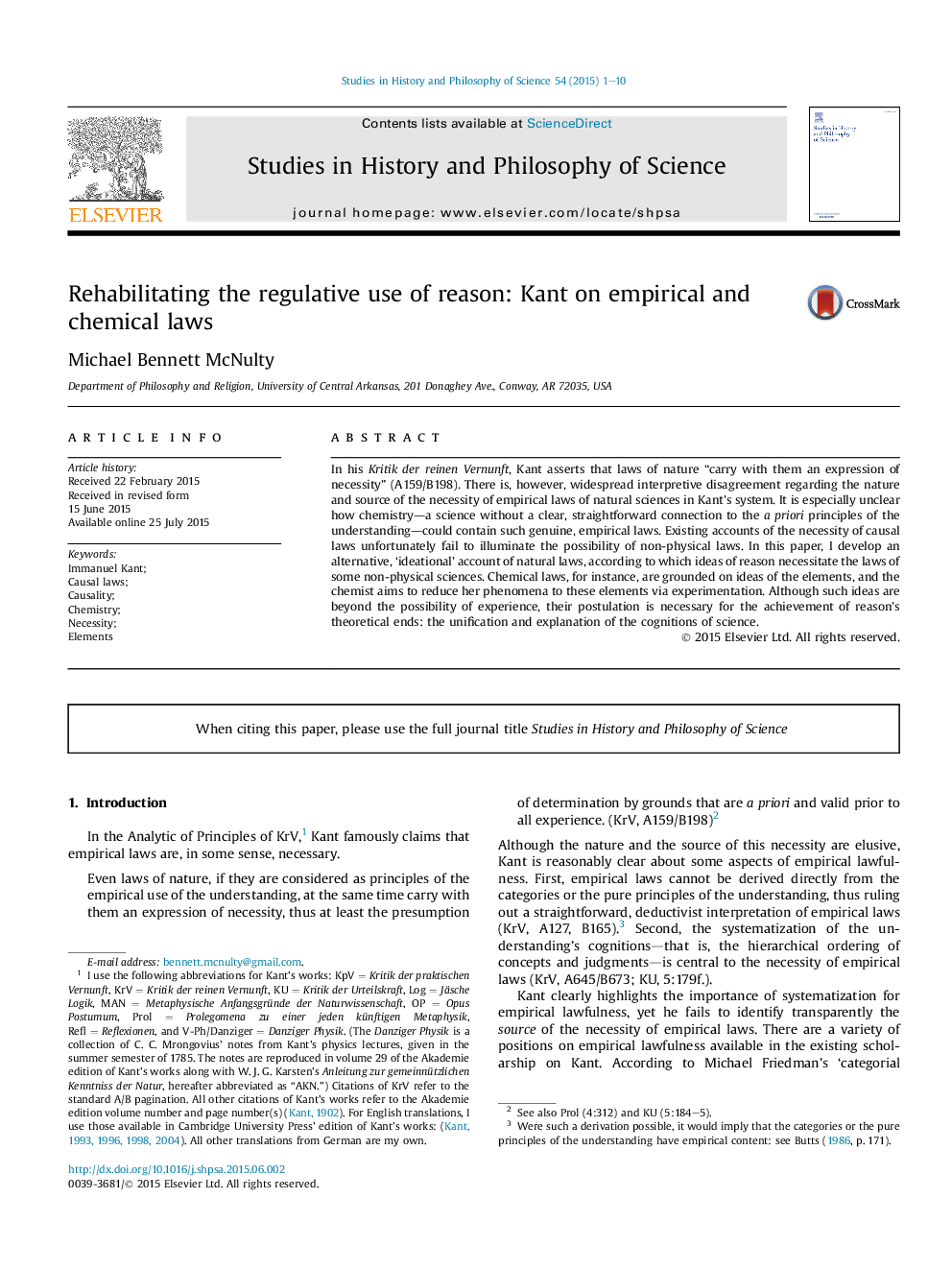| Article ID | Journal | Published Year | Pages | File Type |
|---|---|---|---|---|
| 1160206 | Studies in History and Philosophy of Science Part A | 2015 | 10 Pages |
•Develops a new, ‘ideational’ interpretation of causal laws in Kant's theoretical philosophy.•Argues against existing interpretations of Kant's conception of natural laws.•Grounds the possibility of chemical laws that carry necessity on ideas of the elements.•Clarifies the positive role of the faculty of reason in natural science.
In his Kritik der reinen Vernunft, Kant asserts that laws of nature “carry with them an expression of necessity” (A159/B198). There is, however, widespread interpretive disagreement regarding the nature and source of the necessity of empirical laws of natural sciences in Kant's system. It is especially unclear how chemistry—a science without a clear, straightforward connection to the a priori principles of the understanding—could contain such genuine, empirical laws. Existing accounts of the necessity of causal laws unfortunately fail to illuminate the possibility of non-physical laws. In this paper, I develop an alternative, ‘ideational’ account of natural laws, according to which ideas of reason necessitate the laws of some non-physical sciences. Chemical laws, for instance, are grounded on ideas of the elements, and the chemist aims to reduce her phenomena to these elements via experimentation. Although such ideas are beyond the possibility of experience, their postulation is necessary for the achievement of reason's theoretical ends: the unification and explanation of the cognitions of science.
